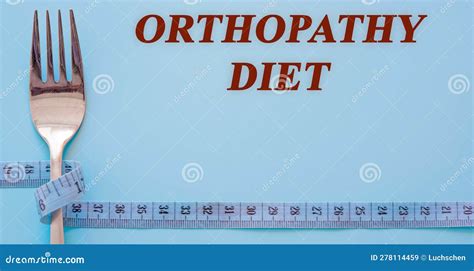Discover the benefits of the baby food diet and learn how to select the right foods, plan meals, and monitor progress for optimal results.
Introduction to Baby Food Diet
Contents
Are you looking for a simple and convenient way to lose weight and stay healthy? The Baby Food Diet might be the solution you’ve been searching for. This popular diet plan involves replacing one or more meals with small portions of baby food, which is specifically designed for infants. Despite its name, the Baby Food Diet is not just for babies. It has gained popularity among adults as a way to control portion sizes and reduce calorie intake.
One of the main reasons people are drawn to the Baby Food Diet is its convenience. Baby food comes in pre-packaged, single-serving containers, making it easy to grab and go. This can be especially helpful for individuals with busy schedules or those who struggle with portion control. Additionally, baby food is available in a wide variety of flavors and textures, allowing dieters to mix and match to create a diverse and satisfying menu.
Another benefit of the Baby Food Diet is its built-in portion control. Each serving of baby food is carefully measured, eliminating the need for tedious calorie counting or portion size estimation. This can be particularly helpful for individuals who struggle with overeating or find it challenging to stick to a strict meal plan.
It’s important to note that while the Baby Food Diet can be an effective way to manage portion sizes and reduce calorie intake, it should be approached with caution. It may not provide all the essential nutrients that adults need on a daily basis. As with any diet plan, it’s crucial to consult with a healthcare professional before making any significant changes to your eating habits.
Benefits of Baby Food Diet
One of the benefits of the baby food diet is that it can help with portion control. Since baby food comes in small servings, it can help individuals to manage their portion sizes and avoid overeating. This can be particularly helpful for those who struggle with portion control or tend to consume larger portions than necessary. Baby food also tends to be lower in calories, making it easier for individuals to control their calorie intake.
Another benefit of the baby food diet is that it can be a convenient and time-saving option for individuals with busy schedules. Baby food is already prepared and easy to consume, making it a quick and convenient option for meals and snacks. This can make it easier for individuals to stick to a healthy eating plan, even when they are short on time.
In addition, baby food diet can also be a good option for individuals who struggle with digestive issues or have difficulty eating solid foods. Baby food is smooth and easy to digest, making it a suitable option for those with sensitive stomachs or digestive problems. It can also be a good choice for individuals who have undergone dental work or surgery and need to consume softer foods during their recovery.
Furthermore, baby food is often rich in vitamins and nutrients, making it a good option for individuals looking to boost their nutrient intake. Many baby foods are fortified with essential vitamins and minerals, providing a convenient way to increase nutrient consumption. This can be particularly beneficial for individuals who struggle to meet their nutritional needs through whole foods alone.
Lastly, the baby food diet may also be a good option for individuals looking to jumpstart their weight loss or detoxify their bodies. Some proponents of the baby food diet claim that it can help individuals to lose weight quickly and cleanse their bodies of toxins. However, it’s important to note that more research is needed to determine the long-term effects and safety of this approach.
Selecting the Right Baby Foods
When it comes to the baby food diet, it’s important to choose the right foods for your little one. Here’s a helpful guide to selecting the perfect baby foods for your child’s needs.
First and foremost, it’s essential to consider your baby’s age and developmental stage when selecting foods. Infants typically start with single-ingredient purees, such as applesauce or mashed bananas, while older babies may be ready for more complex flavors and textures.
Next, take into account any allergies or sensitivities your baby may have. It’s important to introduce new foods one at a time and monitor for any adverse reactions. Common allergens to be cautious of include dairy, eggs, peanuts, and shellfish.
Additionally, opt for organic and natural baby food options whenever possible. This ensures that your baby is consuming foods that are free from harmful chemicals and pesticides, promoting their overall health and well-being.
Lastly, consider the nutritional content of the baby foods you choose. Look for options that are rich in essential nutrients such as iron, calcium, and vitamins A and C. This will help support your baby’s growth and development as they transition to solid foods.
Meal Planning for Baby Food Diet
When it comes to meal planning for baby food diet, it’s important to ensure that your baby is getting all the necessary nutrients for their growth and development. This means including a variety of fruits, vegetables, grains, and protein sources in their meals.
One way to ensure they are getting a balanced diet is to create a weekly meal plan. This can help you stay organized and ensure that your baby is getting a variety of foods throughout the week. It’s important to include a mix of different food groups in each meal, such as pureed fruits and vegetables, yogurt, and baby cereals.
Another important aspect of meal planning for baby food diet is to introduce new foods gradually and watch for any signs of allergies or intolerances. It’s recommended to introduce a new food every 3-5 days so that you can monitor how your baby reacts to it. Be sure to include a variety of textures and flavors in their meals to help them develop their palates.
Additionally, it’s important to keep in mind the portion sizes for each meal. As your baby grows, their portion sizes will increase, but it’s important to not overfeed them. It’s helpful to keep track of the foods you have introduced and monitor your baby’s progress and reactions to the different foods.
In summary, meal planning for baby food diet involves creating a balanced meal plan that includes a variety of food groups, introducing new foods gradually, and monitoring your baby’s progress and reactions to different foods. By following these guidelines, you can help ensure that your baby is getting all the necessary nutrients for their growth and development.
Monitoring Progress and Results
While following the Baby Food Diet, it is important to monitor your progress and results closely to ensure that you are meeting your health and wellness goals. One way to monitor your progress is by keeping track of your weight and measurements. By regularly recording your weight and taking measurements of your body, you can track any changes in your body composition and determine if the diet is helping you achieve your desired results.
Another important aspect of monitoring progress on the Baby Food Diet is to pay attention to how you feel. Take note of your energy levels, mood, and overall sense of well-being. If you find that you are feeling more energetic, happy, and healthy, then it is likely that the diet is working well for you. On the other hand, if you are feeling sluggish, irritable, or fatigued, it may be a sign that the diet is not providing you with the necessary nutrients and energy.
It is also essential to keep a food diary to track your daily intake of baby foods and ensure that you are consuming all the necessary nutrients. By recording everything you eat and drink, you can identify any potential deficiencies or areas for improvement in your diet. Additionally, by keeping a food diary, you can hold yourself accountable for your food choices and make adjustments as needed.
Lastly, consider consulting with a healthcare professional or a nutritionist to assess your progress on the Baby Food Diet. They can provide valuable insight and advice based on your individual health and dietary needs. They can also help you set realistic and achievable goals, as well as monitor any potential health risks or concerns associated with the diet.













